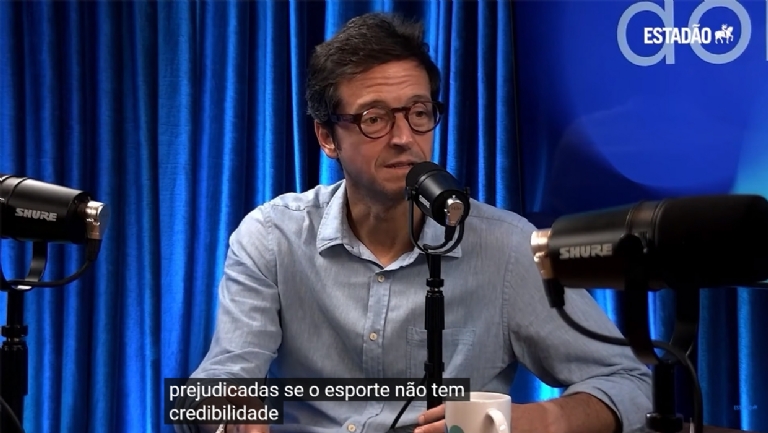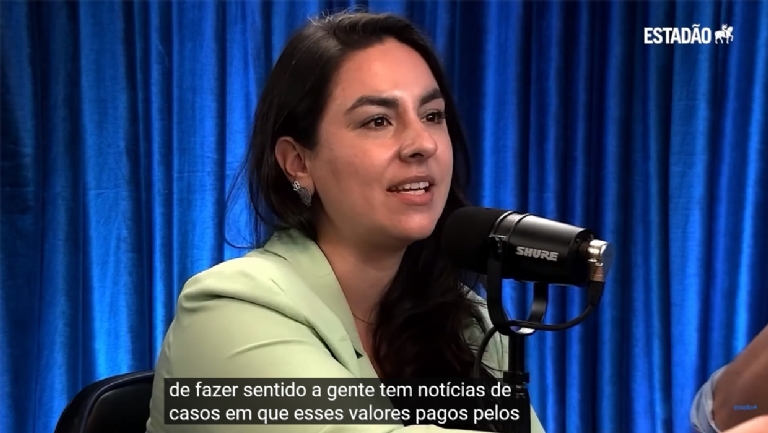

The panel of the ‘Dois Pontos’ vodcast, from Estadão, composed of journalists Rosean Kennedy and Robson Morelli, opened an important space for the discussion of sports betting in Brazil. In its third edition, it welcomed Andre Gelfi, president of the Brazilian Institute of Responsible Gaming, and Mariana Chamelette, a lawyer specializing in sports law.
Asked about how betting houses are preparing for the regulated sector, Gelfi explained that large companies are already ready to start operations, due to all their international experience. “They don’t need to prepare, as they already have the controls and there isn’t much to prepare, they just need to make the investment and apply for a license.”
He believes that the procedures to be established will still take a few months to be completed, but for companies to prepare for licenses, the regulations need to be completed.
Mariana Chamelette said that from a legal point of view, sports betting is legal in Brazil, lacking regulation. “They were prohibited, but in 2018 they were legalized and today we have several bets that operate in Brazil based on their licenses abroad,” she explained.
Gelfi once again stated that with the regulation, companies will begin to operate directly in Brazil, with every guarantee that bettors will have more security and the guarantee that they will receive their prizes and have all the support they need.

“Regulation is essential to create all the processes so that the game is actually monitored and that it is not being manipulated,” he said.
Mariana added that “fraud will be curbed and manipulation will be inhibited with regulation. With the creation of an entity focused on this, all monitoring will be on the agenda.”
Both reinforced that the clubs and sports betting houses themselves are interested in combating the practice, as it is harmful to sport and generates losses for sportsbooks.
Gelfi highlighted that sports betting activity is global and Brazil is far behind in this area. “Global companies came together and created the IBIA (International Betting Integrity Association), maintained by operators and whose function is to monitor manipulation and ensure the integrity of the sport. And notifications depend from country to country. Brazil needs to create its procedures to reach this maturity.”
For him, the main reference in the sector is England, where the activity is already well established and with very clear rules, both for operators, for the safety of bettors and for the government.
Portugal and France are not examples, given exaggerated taxation. Both face difficulties in channeling bettors into the regulated market.
“In the United Kingdom, the tax is 15%, which means that today 95% of the market is formal. The higher the taxation, the smaller the channeling will be,” guaranteed Gelfi.
During the conversation, Gelfi presented an estimate of the movement of betting houses in Brazil. “There are discrepant numbers depending on who presents it, but the Brazilian Institute of Responsible Gaming works with data from H2Capital, a highly respected English consultancy in the sector. The Brazilian market in 2023 should be worth around R$5.8 billion. This is five times more than four years ago.”
Regarding taxation, Gelfi stated that “if the tax were 18%, it would be very good and close to what is applied to operations in the United Kingdom. It is important to point out that 18% refers to a new tax. With PIS, Cofins and ISS, in addition to the inspection rate, taxation is between 32% and 35% and then goes to the French example, where 50% of the market is parallel.”

“The model suggested in Brazil can and should be improved. When the activity was legalized, taxation on gross revenue was expected, but it evolved into the GGR, but I hope that the government will review the percentages so that it meets the market and the law does not drive bettors away to the illegal market,” highlighted Mariana.
Both Gelfi and Chamelette highlighted that there is great apprehension in sports regarding the migration of a large part of the sector to the illegal market, as the ban on advertising and sponsorship by betting houses that are not licensed in Brazil could result in many contracts are terminated and clubs and championships will be left without resources arising from the activity.
For the president of IBJR, for it to be viable, the tax on GGR should be reduced to 10%. “We will reach a value above that practiced in the United Kingdom, but which is at the limit of feasibility and is still a tolerable value.”
The 30% tax on prizes, according to Gelfi, “is terrible and will drive bettors away from the regulated market. This makes the activity unfeasible,” he attested.
“The sports betting sector is a thriving activity in Brazil and needs to be regulated to bring security and all the benefits so that it is sustainable. It is not just any regulation, but it must be balanced and the tax issue has not yet been resolved. We optimistically hope that the discussions will shed light on this process,” concluded Andre Gelfi.
Source: GMB